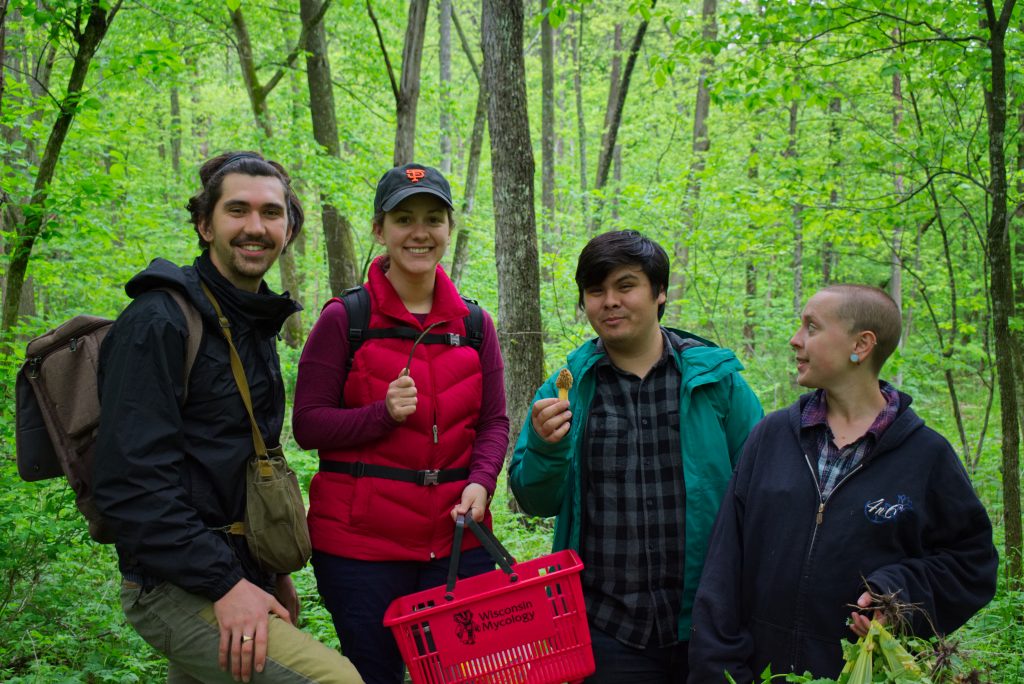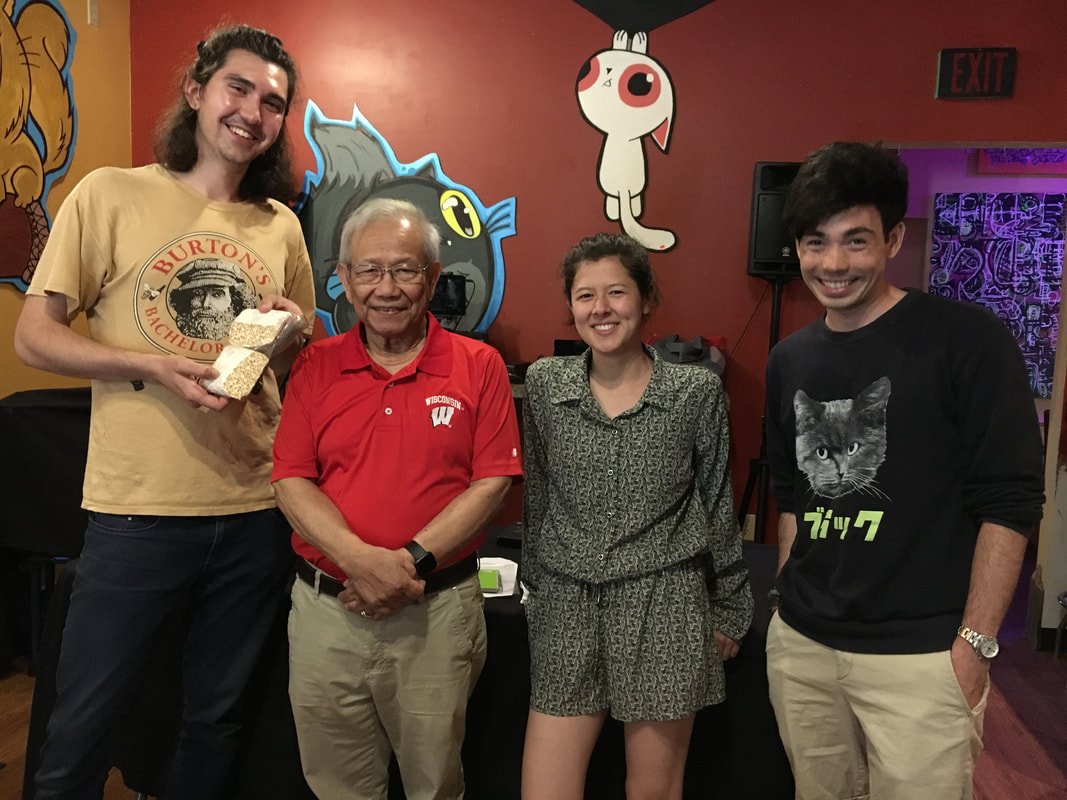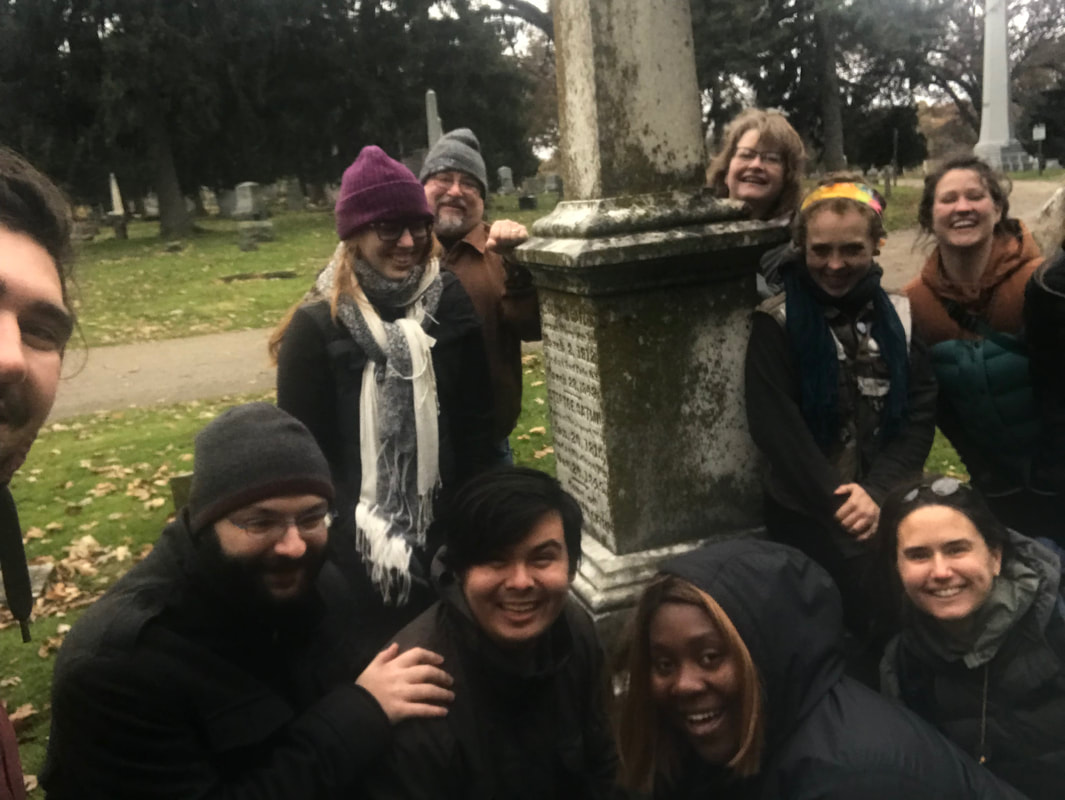Teaching
My journey as a teacher formally began in 2014 when I served as a Science Associate for an introductory biology course at Swarthmore College. In this position, I workshopped pedagogy with the faculty and tutored groups of students in weekly study sessions. Teaching was challenging but also very rewarding. I reveled in the act of biological story telling and shared in my students' feelings of triumphous joy at understanding new concepts. These feelings are only amplified when I teach close to my passions. As a graduate student instructor at University of Michigan, I taught two semesters of microbiology and one semester of mycology. Teaching mycology during the COVID-19 pandemic resulted in unique challenges around inclusion and access. I helped design remote lab activities to accomodate students in their various circumstances, which amplified the need to set clear learning goals and to offer multiple modalities of communication and engagement.
Outreach
Beyond the university, I believe mycology can serve a larger purpose – to draw people's awareness to the natural world and in doing so cultivate what Dr. Robin Wall Kimmerer terms biocultural restoration: "the science and practice of restoring not only ecosystems, but human and cultural relationships to place, so that cultures are strengthened and revitalized along with the lands to which they are inextricably linked." There is much to be said about the role of fungi in restoring ecosystems, but less explored are their role in developing a relationship to place. Over the years, mycology has motivated me to pay attention to much more than fungi. I have also learned a good amount about plants, animals, and other microbial beings, as well as the histories that shape landscapes and ecosystems. These histories, often violent and extractive, create solastalgia, a certain feeling of distress brought on by environmental change, which is inextricably linked to an settler colonialism and white supremacy in the United States. For me, solastalgia is the most telling feeling that mycology can inculcate a relationship to place and in doing so perhaps foster introspection, compassion, community, and positive actions.
Philadelphia Mycology Club (PMC)
I lead walks and identify mushrooms with the PMC. For the year 2023, my goal is to organize weekly meetings at the Wissahickon Park to practice phenological engagement – being present, paying attention, and getting attuned to the waxing and waning of seasons and all the entailing ecological changes.
Mycological Society of America (MSA) Student and Postdoc Section (SPS)
From 2021-2022 I served as the webmaster of the MSA SPS, managing the society's website and assembling monthly newsletters.
Midwest American Mycological Information (MAMI)
MAMI provides Michigan mushroom hunters with the education and certification to safely forage and sell wild mushrooms. In 2021 and 2022, I assisted with a virtual lecture on morels, including how to recognize and avoid toxic lorchel mushrooms, as well an in-person, full-certification workshop for over 70 participants hailing from four Great Lakes states.
Madison Mycological Society (MMS)
I founded Madison Mycological Society in early 2018 and was its president for almost two years. In that time, we became a nonprofit association, grew our mailing to list to hundreds of individuals, and hosted many mushroom walks, talks, and field trips. It was a grand time and a great lesson in leadership, organization, and civic engagement.
Presentations and Mushroom Identication for Mycological Clubs and Societies
I enjoy sharing topics in mycology with members of amateur mushroom clubs and societies. Contact me if you are interested in me giving a presentation or workshop at your organization's next meeting! I am able to present on my primary research interests (lorchels and crust fungi) or any other topic in mycology. Workshops regarding fungal microscopy and DNA barcoding are especially up my alley. Finally, I am able to serve as a lead mushroom identifier at your festivals and gatherings.
Highlighted engagements:
- "Not all bad: Gyromitrin has a limited distribution in the false morels as determined by a new analytical method" - Mycological Association of Washington DC (April 4, 2023)
- "Not all bad: Gyromitrin has a limited distribution in the false morels as determined by a new analytical method" - Torrey Botanical Society winter lecture series (January 31, 2023) [YouTube recording]
- Lead mushroom identifier (including foray table walk through) - Michigan Mushroom Hunter's Club 2021 and 2022 Fungus Fests
- "False morels, true Gyromitras" - Madison Mycological Society virtual lecture series (July 20, 2021)
- "Ecology of crust fungi" - NEMF virtual lecture series (sponsored by New Jersey Mycological Association) (January 29, 2021)
- "Michigan Mycoflora Project" - Michigan Mushroom Hunter's Club winter educational meeting (Febraury 15, 2020)
- "Conserving fungi, who cares?" - Wisconsin Mycological Society lecture series (March 28, 2019)
|
|
Terms of Use, Liability Waiver, and Licensing
The material on aldendirks.com is presented for general informational and educational purposes only, and under no circumstances is to be considered a substitute for identification of an actual biological specimen by a person qualified to make that judgment. Some fungi are poisonous; please be cautious. All images on this website are licensed under Attribution-NonCommercial-NoDerivatives 4.0 International (CC BY-NC-ND 4.0). |







